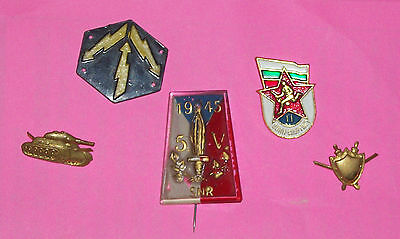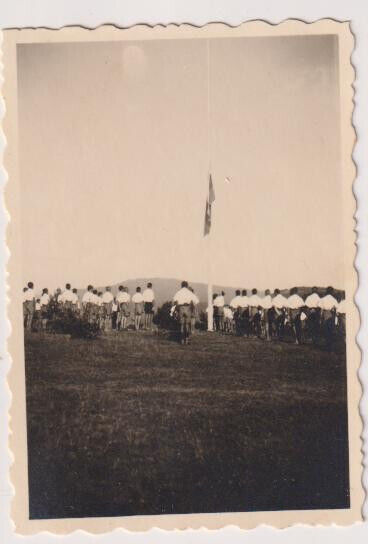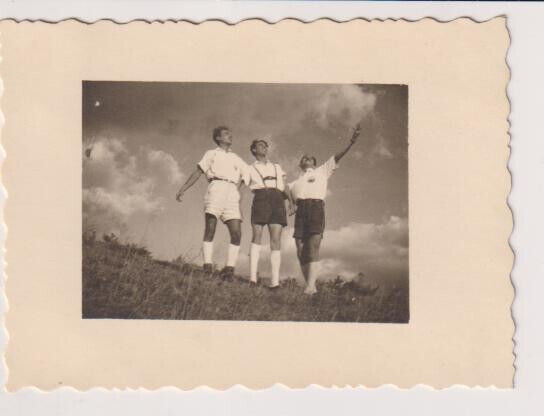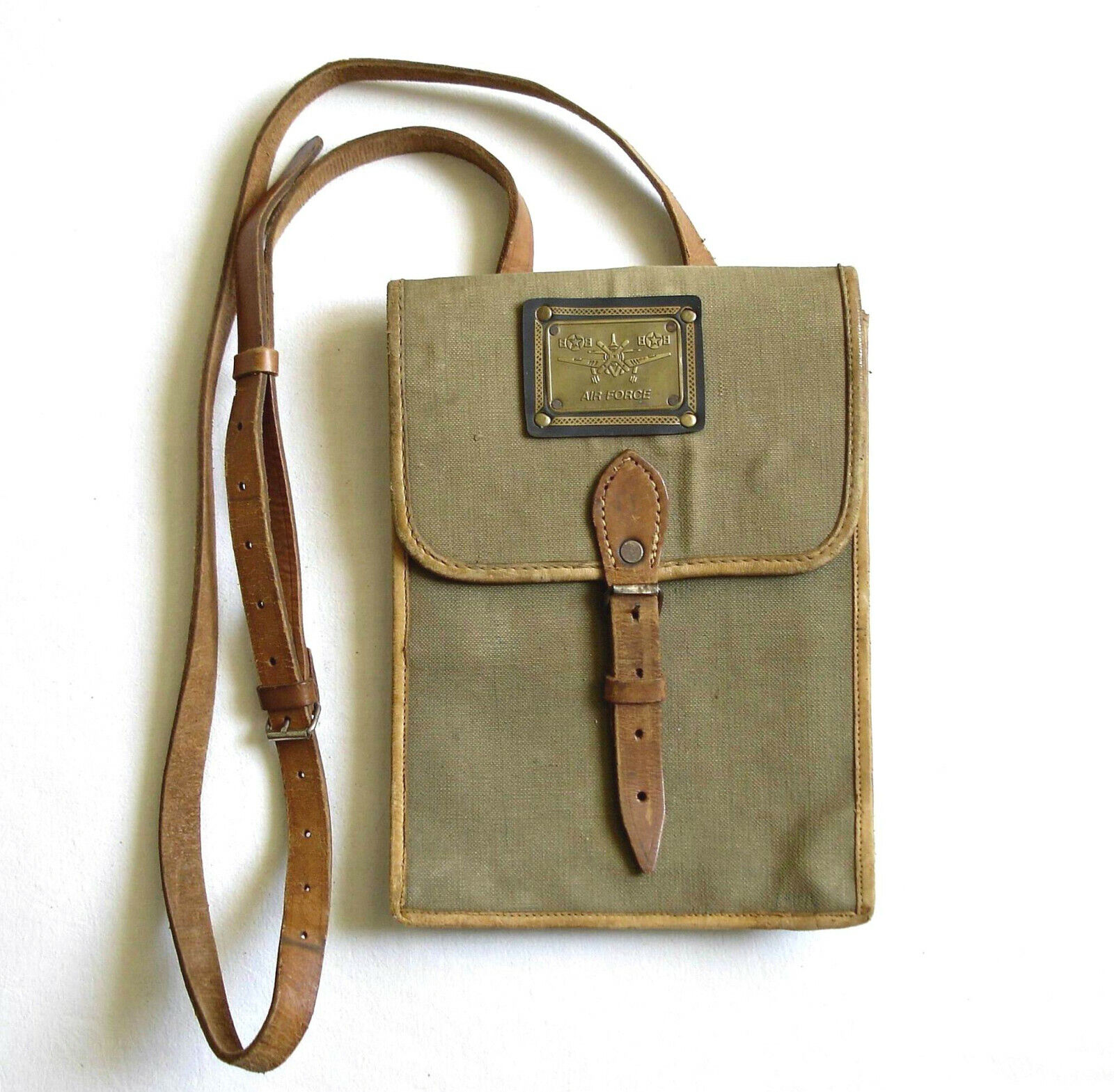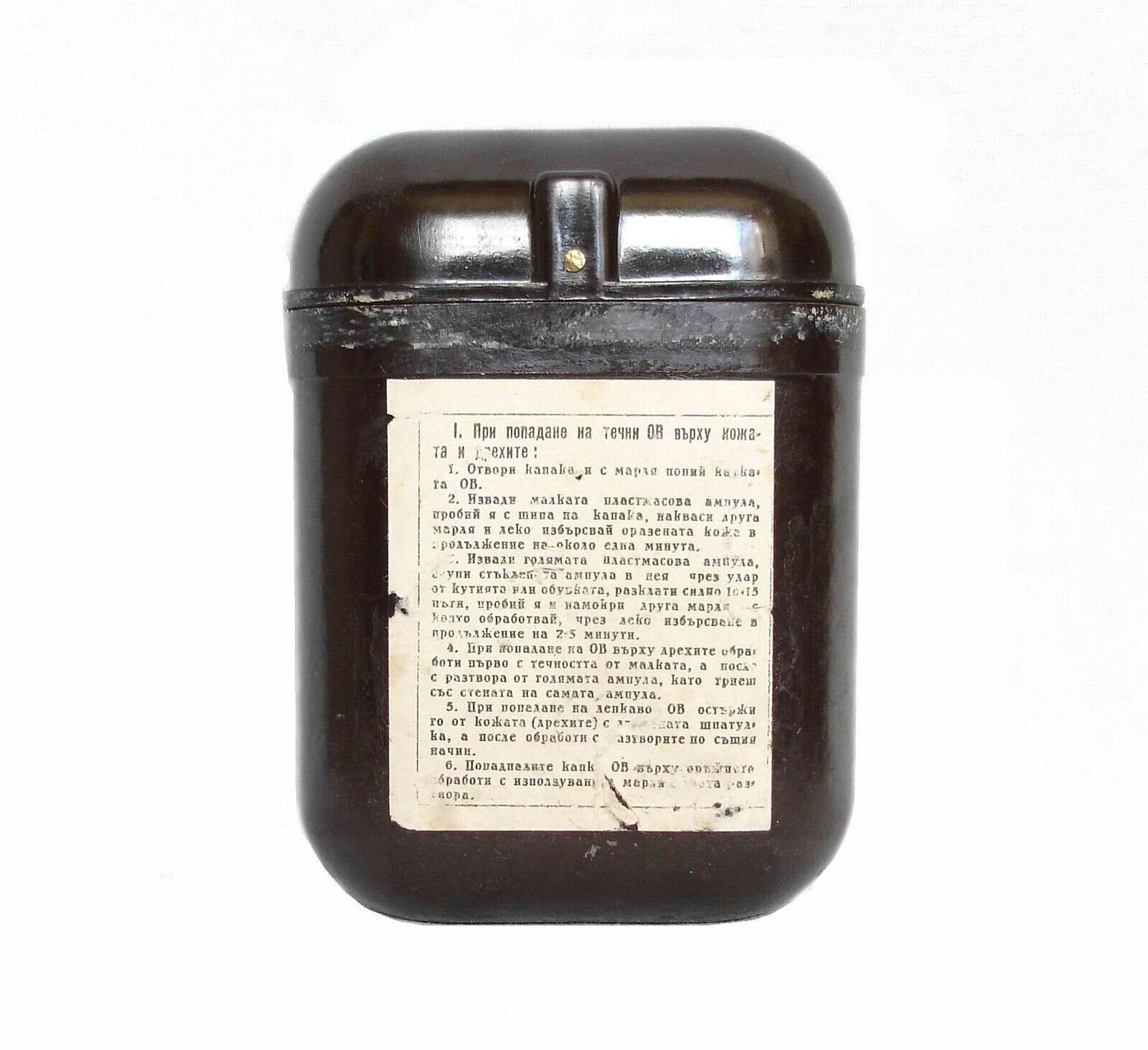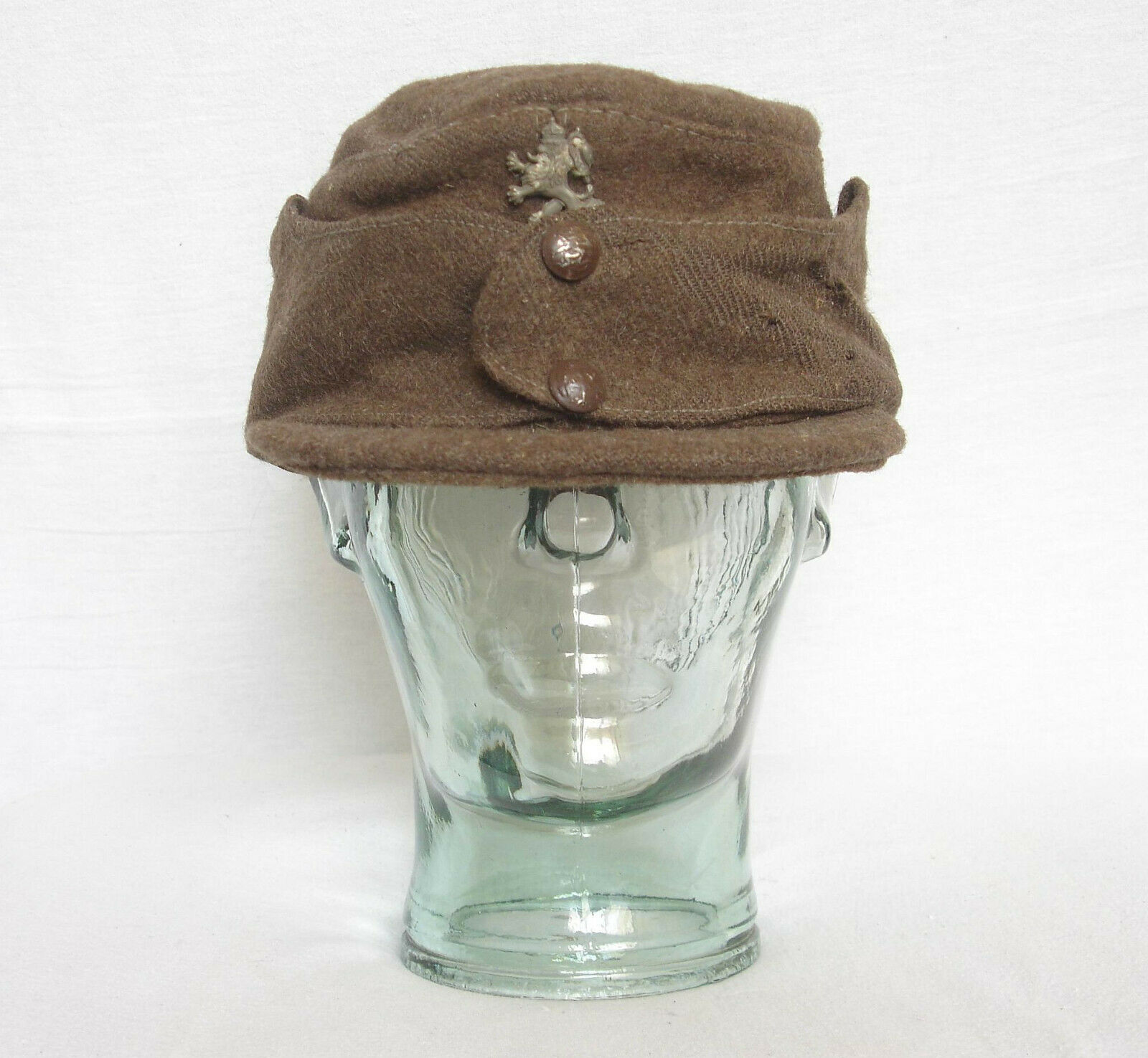-40%
WWII BULGARIA COCKADE UNIFORM PIN INSIGNIA TANK SHIELD 1945 5V SNR DAGGER RADIO
$ 33.39
- Description
- Size Guide
Description
WWII BULGARIA COCKADE UNIFORM PIN INSIGNIA TANK SHIELD 1945 5V SNR DAGGER RADIOGREETINGS, FEEL FREE
TO
"SHOP NAKED."
©
We deal in items we believe others will enjoy and want to purchase.
We are not experts.
We welcome any comments, questions, or concerns.
WE ARE TARGETING A GLOBAL MARKET PLACE.
Thanks in advance for your patronage.
Please Be sure to add WDG to your
favorites list
!
NOW FOR YOUR VIEWING PLEASURE…
VINTAGE INSIGNIA / MERIT LOT
FROM BULGARIA, CZECHOSLOVAKIA,
AND OTHER EASTERN BLOCK COUNTRIES
(5) FIVE PIECES
WWII / COLD WAR ERA
1945 5V SNR
PIN
APPLIED PAINT ON LUCITE
DEPICTS A DAGGER WITH LAUREL LEAVES
GOLD ON RED, WHITE AND BLUE
30mm X 40mm
(MAYBE CZECH)
METAL PIN
BULGARIA
DEPICTS A MAN RUNNING IN A STAR,
THE SOLDIER IS HOLDING A RIFLE.
TWO HASH LINES UNDER SOLDIER
CLOISSONE
GREEN, WHITE AND RED
20mm X 30mm
(2) SOFT METAL HAT COCKADES
GOLD TONE BRASS (?)
DEPICTS A TANK
AND A SHIELD WITH TWO CROSS SWORDS
ABOUT 20mm
MOLDED INSIGNIA
BLACK LAQUER LUCITE
WITH THREE LIGHTNING BOLTS
OR ELECTRICAL CHARGES
MAYBE RADIO SIGNAL MAN OR ELECTRICAL ENGINEERING(?)
MEASURES ABOUT 30mm
RARE
UNUSUAL MILITARIA
HARD TO FIND
YOUR EXPERTISE IS WELCOME IF YOU HAVE ANY COMMENTS!
-----------------------
FYI
Bulgaria is a country located in Southeastern Europe. It is bordered by Romania to the north, Serbia and Macedonia to the west, Greece and Turkey to the south and the Black Sea to the east. With a territory of 110,994 square kilometres (42,855 sq mi), Bulgaria is Europe's 14th-largest country. Its location has made it a historical crossroad for various civilisations and as such it is the home of some of the earliest metalworking, religious and other cultural artifacts in the world.
Prehistoric cultures began developing on Bulgarian lands during the Neolithic period. Its ancient history saw the presence of the Thracians, and later the Greeks and Romans. The emergence of a unified Bulgarian state dates back to the establishment of the First Bulgarian Empire in 681 AD, which dominated most of the Balkans and functioned as a cultural hub for Slavic peoples during the Middle Ages. With the downfall of the Second Bulgarian Empire in 1396, its territories came under Ottoman rule for nearly five centuries. The Russo-Turkish War of 1877–1878 created the Third Bulgarian State. The following years saw several conflicts with its neighbours, which prompted Bulgaria to align with Germany in both World Wars. In 1946 it became a Socialist state with a single-party system. In 1989 the Communist Party allowed multi-party elections, following which Bulgaria transitioned to democracy and a market-based economy.
The population of 7.36 million people is predominantly urban and mainly concentrated in the administrative centres of its 28 provinces. Most commercial and cultural activities are concentrated in the capital Sofia. The strongest sectors of the economy are heavy industry, power engineering and agriculture, all relying on local natural resources.
The current political structure dates to the adoption of a democratic constitution in 1991. Bulgaria is a unitary parliamentary republic with a high degree of political, administrative and economic centralisation. It is a member of the European Union, NATO and the Council of Europe; a founding state of the Organization for Security and Co-operation in Europe (OSCE); and has taken a seat at the UN Security Council three times.
Bulgaria occupies a portion of the eastern Balkan peninsula, bordering five countries—Greece and Turkey to the south, Macedonia and Serbia to the west, and Romania to the north. The land borders have a total length of 1,808 kilometres (1,123 mi), and the coastline has a length of 354 kilometres (220 mi). Its total area of 110,994 kilometres (68,968 mi) ranks it as the world's 105th-largest country. Bulgaria's geographic coordinates are 43° N 25° E.
The most notable topographical features are the Danubian Plain, the Balkan Mountains, the Thracian Plain, and the Rhodope Mountains. The southern edge of the Danubian Plain slopes upward into the foothills of the Balkans, while the Danube defines the border with Romania. The Thracian Plain is roughly triangular, beginning southeast of Sofia and broadening as it reaches the Black Sea coast.
The Balkan mountains run laterally through the middle of the country. The mountainous southwest of the country has two alpine ranges—Rila and Pirin, which border the lower but more extensive Rhodope Mountains to the east. Bulgaria is home to the highest point of the Balkan peninsula, Musala, at 2,925 metres (9,596 ft) and its lowest point is sea level. Plains occupy about one-third of the territory, while plateaus and hills occupy 41 per cent. The country has a dense network of about 540 rivers, most of which are relatively small and with low water levels. The longest river located solely in Bulgarian territory, the Iskar, has a length of 368 kilometres (229 mi). Other major rivers include the Struma and the Maritsa in the south.
Bulgaria has a dynamic climate, which results from its being positioned at the meeting point of Mediterranean and continental air masses and the barrier effect of its mountains. Northern Bulgaria averages 1°C cooler and registers 200 millimetres (7.9 in) more annually than the regions south of the Balkan mountains. Temperature amplitudes vary significantly in different areas. The lowest recorded temperature is −38.3 °C (−36.9 °F), while the highest is 45.2 °C (113.4 °F). Precipitation averages about 630 millimetres (24.8 in) per year, and varies from 500 millimetres (19.7 in) in Dobrudja to more than 2,500 millimetres (98.4 in) in the mountains. Continental air masses bring significant amounts of snowfall during winter.
Bulgaria is a parliamentary democracy in which the most powerful executive position is that of prime minister. The political system has three branches—legislative, executive and judicial, with universal suffrage for citizens at least 18 years old. Elections are supervised by an independent Central Election Commission that includes members from all major political parties. Parties must register with the commission prior to participating in a national election. Normally, the prime minister-elect is the leader of the party receiving the most votes in parliamentary elections.
Political parties gather in the National Assembly, which consists of 240 deputies elected to four-year terms by direct popular vote. The National Assembly has the power to enact laws, approve the budget, schedule presidential elections, select and dismiss the Prime Minister and other ministers, declare war, deploy troops abroad, and ratify international treaties and agreements. The president serves as the head of state and commander-in-chief of the armed forces, and has the authority to return a bill for further debate, although the parliament can override the presidential veto by a simple majority vote of all members of parliament. Boyko Borisov of the centre-right party Citizens for European Development of Bulgaria (GERB) became prime minister on 27 July 2009, while GERB-backed Rosen Plevneliev was elected president in 2011, after receiving 52.5 per cent of the votes on the second round against 47.5 per cent for his Socialist Party opponent Ivaylo Kalfin. Until February 2013 GERB had 117 seats in the National Assembly and no permanent political allies, ruling as a minority government.
The government resigned on 20 February 2013 after nationwide protests caused by high costs of utilities, low living standards and the failure of the democratic system. The protest wave was marked by self-immolations, spontaneous demonstrations and a strong sentiment against political parties. As a consequence, the Parliament was dissolved and a new provisional government was set up by the President. The May 2013 elections were narrowly won by GERB, which has no support from any of the other three parties present in Parliament.
Political groups in the Parliament and number of representatives (2013):
GERB (centre-right, 97)
BSP (left-wing, 84)
DPS (centrist, 36)
ATAKA (far-right, 23)
Bulgaria has a typical civil law legal system. The judiciary is overseen by the Ministry of Justice. The Supreme Administrative Court and Supreme Court of Cassation are the highest courts of appeal and oversee the application of laws in subordinate courts. The Supreme Judicial Council manages the system and appoints judges. Bulgaria's judiciary, along with other institutions, remains one of Europe's most corrupt and inefficient.
Law enforcement is carried out by organisations mainly subordinate to the Ministry of the Interior. The National Police Service (NPS) combats general crime, maintains public order and supports the operations of other law enforcement agencies. NPS fields 27,000 police officers in its local and national sections. The Ministry of Interior also heads the Border Police Service and the National Gendarmerie—a specialised branch for anti-terrorist activity, crisis management and riot control. Counterintelligence and national security are the responsibility of the State Agency for National Security, established in 2008.
Culture
Thracian golden wreath in the National Historical Museum.
Traditional Bulgarian culture contains mainly Thracian, Slavic and Bulgar heritage, along with Greek, Roman, Ottoman, Persian and Celtic influences. Nine historical and natural objects have been inscribed in the list of UNESCO World Heritage Sites: the Madara Rider, the Thracian tombs in Sveshtari and Kazanlak, the Boyana Church, the Rila Monastery, the Rock-hewn Churches of Ivanovo, Pirin National Park, Sreburna Nature Reserve and the ancient city of Nesebar. Nestinarstvo, a ritual fire-dance of Thracian origin, is included in the list of UNESCO Intangible Cultural Heritage. Fire is an essential element of Bulgarian folklore, used to banish evil spirits and diseases. Bulgarian folklore personifies illnesses as witches and has a wide range of creatures, including lamya, samodiva (veela) and karakondzhul. Some of the customs and rituals against these spirits have survived and are still practiced, most notably the kukeri and survakari. Martenitsa is also widely celebrated.
Along with traditional culture, much heritage from other civilisations has been accumulated since Antiquity. Local researchers claim that the number of archaeological sites is the third-largest in Europe after Italy and Greece. The first book written in a Germanic language—the 4th century Wulfila Bible, was created in Nicopolis ad Istrum in a small Gothic community in present-day northern Bulgaria. The first Christian monastery in Europe was established around the same time. Plovdiv is one of the oldest continuously inhabited cities, and the oldest golden treasure in the world, consisting of coins, weapons and jewellery dating to 4,600 BC, was discovered near Varna in 1972. The site revealed evidence of the first European civilisation.
Slavic culture was centered in both the First and Second Bulgarian Empires during much of the Middle Ages. The Preslav, Ohrid and Tarnovo literary schools exerted considerable cultural influence over the Eastern Orthodox world. Many languages in Eastern Europe and Asia use Cyrillic script, which originated in the Preslav Literary School around the 9th century. The medieval advancement in the arts and letters ended with the Ottoman conquest when many masterpieces were destroyed, and artistic activities did not re-emerge until the National Revival in the 19th century. After the Liberation, Bulgarian literature quickly adopted European literary styles such as Romanticism and Symbolism. Since the beginning of the 20th century, several Bulgarian authors, such as Ivan Vazov, Pencho Slaveykov, Peyo Yavorov, Yordan Radichkov and Tzvetan Todorov have gained prominence. In 1981 Bulgarian-born writer Elias Canetti was awarded the Nobel Prize in Literature.
Bulgarian folk music is by far the most extensive traditional art and has slowly developed throughout the ages as a fusion of Eastern and Western influences. It contains Far Eastern, Oriental, medieval Eastern Orthodox and standard Western European tonalities and modes. The music has a distinctive sound and uses a wide range of traditional instruments, such as gadulka, gaida (bagpipe), kaval and tupan. One of its most distinguishing features is extended rhythmical time, which has no equivalent in the rest of European music. The State Television Female Vocal Choir is the most famous performing folk ensemble, and received a Grammy Award in 1990. Bulgaria's written musical composition can be traced back to the early Middle Ages and the works of Yoan Kukuzel (c. 1280–1360). Classical music, opera and ballet are represented by composers Emanuil Manolov, Pancho Vladigerov and Georgi Atanasov and singers Ghena Dimitrova and Boris Hristov. Bulgarian performers have gained popularity in several other genres like progressive rock (FSB), electropop (Mira Aroyo) and jazz (Milcho Leviev).
The religious visual arts heritage includes frescoes, murals and icons, many produced by the medieval Tarnovo Artistic School. Vladimir Dimitrov, Nikolay Diulgheroff and Christo are some of the most famous modern Bulgarian artists. Film industry remains weak: in 2010, Bulgaria produced three feature films and two documentaries with public funding. Cultural events are advertised in the largest media outlets, including the Bulgarian National Radio, and daily newspapers Dneven Trud and 24 Chasa.
Bulgarian cuisine is similar to those of other Balkan countries and demonstrates a strong Turkish and Greek influence. Yogurt, lukanka, banitsa, shopska salad, lyutenitsa and kozunak are among the best-known local foods. Oriental dishes such as moussaka, gyuvech, and baklava are also present. Meat consumption is lower than the European average, given a notable preference for a large variety of salads. Rakia is a traditional fruit brandy which was consumed in Bulgaria as early as the 14th century. Bulgarian wine is known for its Traminer, Muskat and Mavrud sorts, of which up to 200,000 tonnes are produced annually. Until 1989, Bulgaria was the world's second-largest wine exporter.
Bulgaria performs well in sports such as wrestling, weight-lifting, boxing, gymnastics and tennis. The country fielded one of the leading men's volleyball teams, ranked eighth in the world according to the 2012 FIVB rankings. Football is by far the most popular sport. Some famous players are Fulham forward Dimitar Berbatov and Hristo Stoichkov, winner of the Golden Boot and the Golden Ball and the most successful Bulgarian player of all time. Prominent domestic clubs include PFC CSKA Sofia and PFC Levski Sofia. The best performance of the national team at FIFA World Cup finals came in 1994, when it advanced to the semi-finals by defeating consecutively Greece, Argentina, Mexico and Germany, finishing fourth. Bulgaria has participated in most Olympic competitions since its first appearance at the 1896 games, when it was represented by Charles Champaud. The country has won a total of 218 medals: 52 gold, 86 silver, and 80 bronze, which puts it in 24th place in the all-time ranking.
(THIS PICTURE FOR DISPLAY ONLY)
---------------------------
Thanks for choosing this auction. You may email for alternate payment arrangements. We combine shipping. Please pay promptly after the auction. The item will be shipped upon receipt of funds. WE ARE GOING GREEN, SO WE DO SOMETIMES USE CLEAN RECYCLED MATERIALS TO SHIP.
Please leave feedback when you have received the item and are satisfied. Please respond when you have received the item.
*****
5*'s
*****
If you were pleased with this transaction, please respond with all 5 stars! If you are not pleased, let us know via e-mail. Our goal is for 5-star service. We want you to be a satisfied, return customer.
Please express any concerns or questions. More pictures are available upon request. The winning bid will incur the cost of S/H INSURED FEDEX OR USPS. See rate calculator or email FOR ESTIMATE. International Bidders are Welcome but be mindful if your country is excluded from safe shipping.
Thanks for perusing
THIS
and
ALL
our auctions.
Please Check out our
other items
!
WE like the curious and odd.
BUY, BYE!!
i
Certain images/photos incorporated into this template are the royalty free property of Northwestern University Library.
Track Page Views With
Auctiva's FREE Counter
